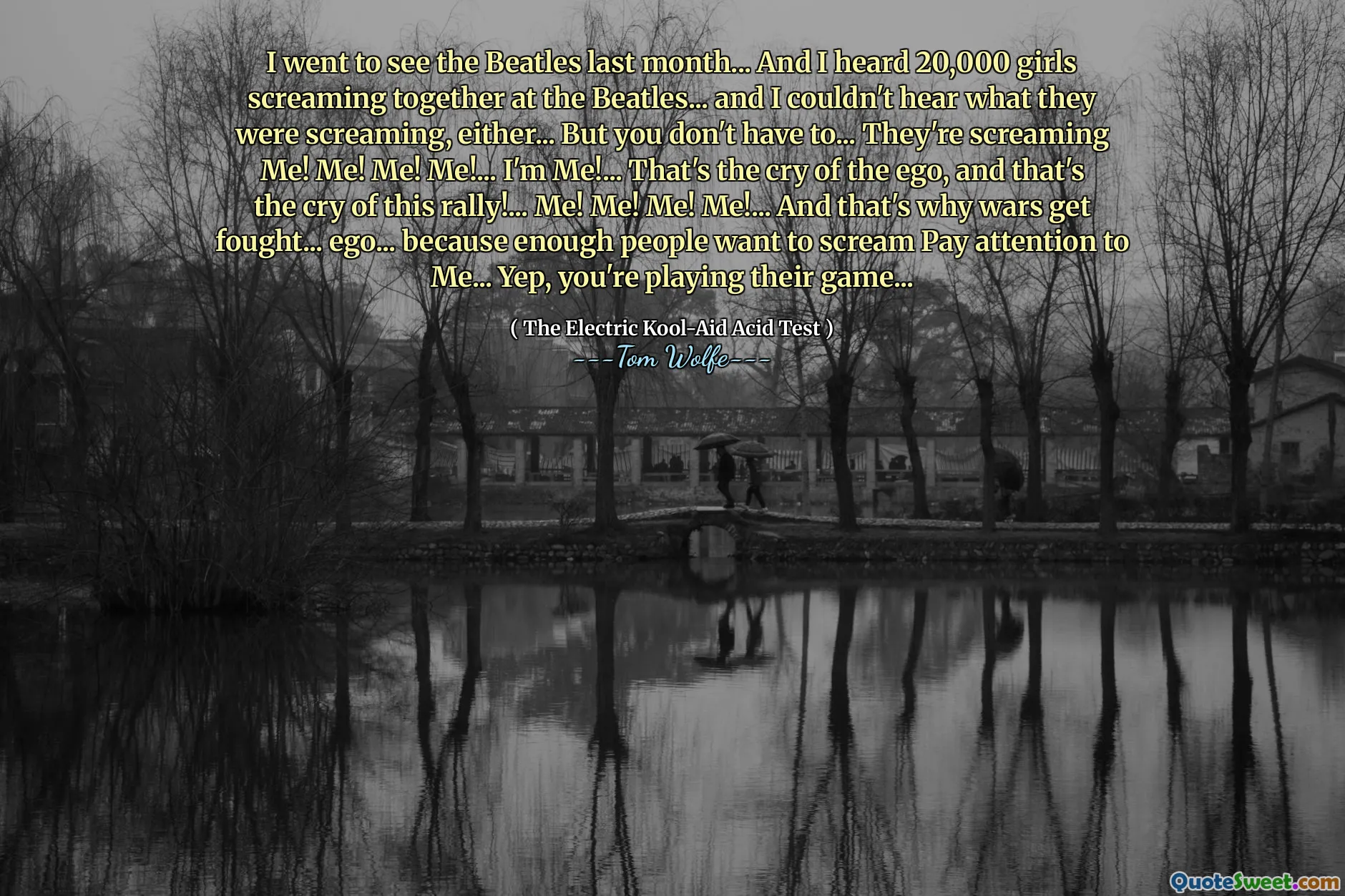
I went to see the Beatles last month... And I heard 20,000 girls screaming together at the Beatles... and I couldn't hear what they were screaming, either... But you don't have to... They're screaming Me! Me! Me! Me!... I'm Me!... That's the cry of the ego, and that's the cry of this rally!... Me! Me! Me! Me!... And that's why wars get fought... ego... because enough people want to scream Pay attention to Me... Yep, you're playing their game...
This quote vividly captures the human obsession with ego and self-identity, illustrating how the desire for recognition and attention can become a collective phenomenon that fosters conflict. The imagery of thousands of girls screaming for the Beatles symbolizes admiration and adulation, yet beneath the surface lies a deeper message about individual egos clamoring for acknowledgment. The speaker points out that the loudest screams—those of 'Me! Me! Me!'—are manifestations of our innate need to be noticed, validated, and elevated above others. This drive for personal attention can easily translate into societal conflicts, including wars, as groups or nations seek supremacy or recognition by asserting their own worth over others. The quote offers a critique of how ego-driven behavior underpins many of the world’s disputes and struggles. It prompts reflection on the importance of understanding our social behaviors and urges us to recognize that conflicts often stem from a fundamental human hunger for validation. In emphasizing that we are complicit in 'playing their game,' the message encourages introspection about the ways in which individual egotism shapes collective actions, sometimes with devastating consequences. This insight aligns with Wolfe’s broader exploration of counterculture and societal critique, urging us to introspect on the motivations behind our actions and to consider a shift toward empathy and humility rather than egoism.







